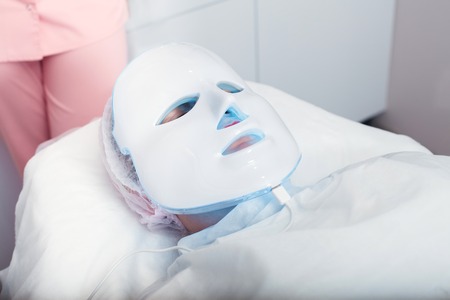Understanding Common Causes of Itching and Dark Spots
In India, many people experience itching and dark spots on their skin due to a blend of environmental, lifestyle, and genetic factors. The tropical climate with high humidity often leads to sweat accumulation, which can trigger irritation and itchiness. Dust, pollution, and exposure to harsh sun rays are also major contributors, as they damage the skin’s natural barrier and cause pigmentation. Additionally, common habits like using heavily fragranced soaps or not applying sunscreen make Indian skin more vulnerable to these issues. Dietary choices—such as eating spicy foods or consuming less water—can further aggravate skin sensitivity. Hormonal changes during puberty, pregnancy, or menopause frequently result in dark spots, especially for Indian women. Understanding these causes is essential before choosing effective home face masks tailored for Indian skin types, as it helps address the root problems and promotes healthier, clearer skin.
Time-Tested Indian Home Remedies for Skin Care
When it comes to tackling itching and dark spots, Indian households have always trusted their age-old nuskhas—simple yet powerful home remedies passed down through generations. These remedies are not just part of our culture; they’re a living tradition that we still rely on today, especially when we need quick solutions before a festival or family gathering. Let’s explore some of the most popular ingredients and how they can be used effectively as face masks.
Key Ingredients in Traditional Indian Face Masks
| Ingredient | Hindi Name | Main Benefit |
|---|---|---|
| Turmeric | Haldi | Reduces inflammation and fades dark spots |
| Fuller’s Earth | Multani Mitti | Soothes itching, absorbs excess oil, and brightens skin |
| Gram Flour | Besan | Exfoliates dead skin and lightens pigmentation |
How These Nuskhas Work Their Magic
I remember my dadi (grandmother) preparing these natural packs every summer, especially when I’d return from playing outside with sunburns and itchy patches. She would mix haldi with dahi (curd) to calm my skin or blend besan with rosewater for a refreshing mask. Each remedy is simple, yet the results speak for themselves.
The Science Behind The Tradition
The combination of these ingredients works because turmeric acts as an anti-inflammatory agent, multani mitti cools and detoxifies, while besan gently removes dead skin layers. This synergy not only addresses immediate concerns like itching but also gradually reduces dark spots over regular use.
Cultural Touch: Why We Still Trust These Remedies
Using these nuskhas isn’t just about skincare—it’s about connecting with our roots and experiencing self-care the way our elders did. Whether during Karva Chauth preparations or everyday routine, these home remedies remain an integral part of every Indian woman’s beauty ritual.
![]()
3. DIY Face Mask Recipes Using Local Ingredients
Step-by-Step Instructions for Effective Home Remedies
Indian households have always relied on natural ingredients to tackle skin issues like itching and dark spots. Below are some simple, time-tested face mask recipes using easily available items such as neem, curd (dahi), sandalwood (chandan), and aloe vera. These remedies are gentle, effective, and perfectly suited for the Indian climate.
Neem & Curd Mask
Ingredients:
- Fresh neem leaves or neem powder – 1 tablespoon
- Curd (dahi) – 2 tablespoons
Instructions:
- Grind fresh neem leaves to make a paste or use ready-made neem powder.
- Add curd to the neem and mix until you get a smooth consistency.
- Apply the mixture evenly over your face, focusing on itchy areas and dark spots.
- Leave it on for 15-20 minutes before washing off with lukewarm water.
This mask helps soothe irritated skin and lightens pigmentation thanks to neem’s antibacterial properties and curd’s natural lactic acid.
Sandalwood & Aloe Vera Gel Mask
Ingredients:
- Sandalwood powder (chandan) – 1 tablespoon
- Fresh aloe vera gel – 2 tablespoons
Instructions:
- Mix sandalwood powder with aloe vera gel in a clean bowl.
- Blend well to form a thick paste.
- Apply generously over your face and neck.
- Let it dry for about 20 minutes, then rinse off with cool water.
Sandalwood provides a calming effect on itchy skin, while aloe vera hydrates and aids in fading dark spots.
Tips for Best Results
- Always patch test new ingredients to avoid allergic reactions.
- Use these masks two to three times a week for visible improvement.
- If you’re stepping out after using these masks, remember to apply sunscreen to protect your healing skin from further pigmentation.
By incorporating these locally inspired face masks into your routine, you can embrace traditional wisdom and enjoy healthier, brighter skin without relying on chemical-laden products.
4. Application Tips and Frequency for Best Results
Applying homemade face masks in India requires a thoughtful approach due to the country’s diverse climate and unique skin sensitivities. To maximize the benefits of your Hindi-style remedies for itching and dark spots, follow these essential tips:
How to Properly Apply Face Masks
- Cleansing: Always start with a clean face. Use a gentle herbal cleanser like besan (gram flour) mixed with rose water to remove dirt and oil.
- Even Application: Use clean fingers or a soft brush to apply the mask evenly. Avoid the delicate areas around the eyes and lips.
- Layering: For thick masks (like multani mitti or sandalwood), apply in thin layers for better absorption and comfort, especially in humid regions.
- Relaxation: Sit back and relax while the mask works its magic. Avoid talking or moving facial muscles for best results.
Ideal Frequency for Different Skin Types
| Skin Type | Recommended Frequency | Suitable Ingredients |
|---|---|---|
| Oily/Acne-Prone | 2-3 times per week | Multani Mitti, Neem, Lemon Juice |
| Dry/Sensitive | 1-2 times per week | Cucumber, Aloe Vera, Honey, Milk Cream (Malai) |
| Normal/Combination | 2 times per week | Sandalwood, Turmeric, Rose Water |
Precautionary Measures for Indian Weather & Skin Sensitivities
- Patching First: Always do a patch test on your forearm before applying any new mask, especially if you have sensitive skin or are using strong ingredients like lemon or turmeric.
- Avoid Overuse: Do not exceed recommended frequency—over-masking can strip natural oils, causing more irritation and pigmentation issues.
- Adapt for Seasons: In summer, opt for cooling ingredients (cucumber, mint). In winter, use hydrating elements (honey, milk cream).
- Sun Protection: After removing the mask, always apply a light moisturizer and sunscreen before stepping out to prevent further darkening of spots.
- No Harsh Scrubbing: Remove masks gently with lukewarm water and soft circular motions; harsh scrubbing can worsen itching or cause micro-tears on Indian skin types.
Your Personal Experience Matters
I found that using a multani mitti and rose water mask twice a week during Delhi’s hot months worked wonders for my itching and pigmentation. However, during the dry winters in Rajasthan, I switched to aloe vera and malai to keep my skin calm and nourished. Listen to your skin’s needs—adjust ingredients and frequency as per your region’s weather patterns for truly effective results.
5. Real Experiences: Stories from Indian Households
When it comes to home remedies, every Indian household has its own tried and tested methods, passed down through generations. The effectiveness of these Hindi-style face masks for itching and dark spots is best understood through real-life experiences.
Anjali’s Turmeric & Curd Remedy
Anjali, a homemaker from Lucknow, shared that she started using a simple haldi (turmeric) and dahi (curd) mask when she noticed persistent itching and tiny dark patches on her cheeks. After applying the paste twice a week for a month, she observed that not only did the itching subside but her skin tone appeared more even. Her grandmother always said, “Haldi hai toh chinta nahi”—if you have turmeric, there’s nothing to worry about.
Ravi’s Multani Mitti Solution
Ravi, a college student in Delhi, struggled with oily skin and dark spots due to frequent sun exposure. He opted for a multani mitti (Fuller’s Earth) mask mixed with rose water. According to Ravi, after consistent use over three weeks, his skin felt cooler, less irritated, and the appearance of dark spots reduced significantly. He mentioned his mother’s advice: “Multani mitti sab kuch thik kar deta hai”—Fuller’s Earth fixes everything.
Sneha’s Besan & Honey Mix
Sneha from Pune used besan (gram flour) mixed with honey to tackle both itching and pigmentation. She says her nani recommended this blend during the hot summer months. Sneha noticed that after regular application, her skin felt smoother, itchiness decreased, and the dark marks faded gradually. She believes that adding a pinch of sandalwood powder made all the difference.
Community Wisdom Matters
Across India, these stories echo similar themes—trust in natural ingredients found in every kitchen and confidence in age-old traditions. Most families emphasise patch testing before full application and remind us that patience is key; visible changes often take several weeks of regular use.
The Verdict from Indian Homes
The collective experience of Indian households points to one fact: Hindi-style homemade face masks are gentle yet effective solutions for itching and dark spots when used consistently and mindfully. These true accounts not only highlight results but also celebrate the richness of Indian home remedies.
6. When to Consult a Dermatologist
While homemade face masks with ingredients like turmeric (haldi), besan, honey, and sandalwood (chandan) have been trusted by Indian families for generations to manage itching and dark spots, it is important to understand their limitations. Sometimes, despite regular use of these natural remedies, your skin may not show the improvement you expect. Recognising when to seek professional help can make a big difference in your skin health.
Signs Your Skin Needs Expert Attention
If you notice any of the following, it may be time to consult a dermatologist:
- Persistent Itching: If itching continues for more than two weeks, even after applying home remedies like neem or aloe vera gel.
- Spreading Dark Spots: When dark spots increase in size or number, or start appearing on new areas despite using ingredients like lemon juice or multani mitti.
- Pain or Swelling: If there is pain, swelling, or pus formation at the site of itching or pigmentation.
- Allergic Reactions: If your skin develops rashes, redness, burning sensation, or blisters after applying any mask.
Cultural Wisdom and Modern Medicine
In India, families often rely on age-old nuskhas and dadi maa ke totke before visiting a doctor. While this tradition holds value, do remember that everyone’s skin is unique and some conditions may require medical treatment. Don’t hesitate to seek advice from a certified dermatologist if you are worried about stubborn symptoms.
Your Skin Deserves Care
No matter how effective our traditional home face masks are, sometimes professional guidance ensures that you get the right diagnosis and treatment. Early consultation can prevent complications and help restore your skin’s natural glow faster. In summary, trust your instincts: if home remedies do not work or cause discomfort, reach out to an expert—your skin will thank you for it!

